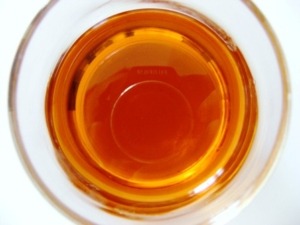General Details
Product name: Tomato seed oil
Plant latin name: Solanum lycopersicum
Production method: Cold press
Appearance: Orange oil
Health Benefits
 Tomato seed oil is orange oil, cold pressed from seeds of fresh tomatoes. It is rich in beta-carotene, Vitamin E, Vitamin D, lycopene and unsaturated fatty acids; its high antioxidant content makes it an ideal remedy for wrinkles, age spots and sun damage. Meanwhile tomato seed oil can help treat different skin and hair conditions, so it is added to lotion and shampoo products, and it is edible.
Tomato seed oil is orange oil, cold pressed from seeds of fresh tomatoes. It is rich in beta-carotene, Vitamin E, Vitamin D, lycopene and unsaturated fatty acids; its high antioxidant content makes it an ideal remedy for wrinkles, age spots and sun damage. Meanwhile tomato seed oil can help treat different skin and hair conditions, so it is added to lotion and shampoo products, and it is edible.
Antioxidants
Studies discovered that tomato seed oil contains the antioxidants beta-carotene, phystosterols and lycopene, which prevent the occurrence of certain cancers by neutralizing the harmful free radicals and prohibiting them from causing cellular damage. Lycopene has been shown to protect against breast and prostate cancer, coronary artery disease and also atherosclerosis, which can increase bone strength and density as well as helping to prevent skin cancer.
Minerals
Tomato seed oil is rich in copper, iron, manganese and zinc. Copper and iron are essential in the formation of red blood cells and hemoglobin. Copper sustains bone and immunity health, as well as preserving the health of nerves and blood vessels. Manganese helps with metabolic functions and promotes the growth and development of the brain and bones. Zinc helps to maintain healthy skin and prevents against illnesses, such as the flu, colds and infections.
Vitamins
Tomato seed oil is rich in vitamin E. Vitamin E is crucial for the formation of red blood cells and assists the body with the absorption of vitamin K. Vitamin K is responsible for the coagulation of blood and bone health.
Additional Benefits
Tomato seed oil also includes unsaturated fatty acids, including linoleic acid and alpha linolenic acid, as well as lysine, the essential amino acid. Linoleic acid is needed to combine cholesterol for normal running and metabolizing. If cholesterol combines with saturated fatty acids, cholesterol stays at blood vessel membrane to become atherosclerosis.
DHA and EPA can also be synthesized by humans from alpha linolenic acid; EPA lowers cholesterol and triglyceride level to help metabolizing saturated fatty acids. DHA is a main element for nerve system cell growth and maintaining, also an important part of brain and retina, DHA reaches up to 20% in human brain cortex, and retina is 50%.
Scientist found that lysine sustains growth and helps the body to convert fatty acids into energy. By eliminating a build-up of fatty acids, the body is able to regulate cholesterol levels. Furthermore, lysine helps the body to absorb calcium, thereby preventing osteoporosis, and is responsible for the formation of collagen.
